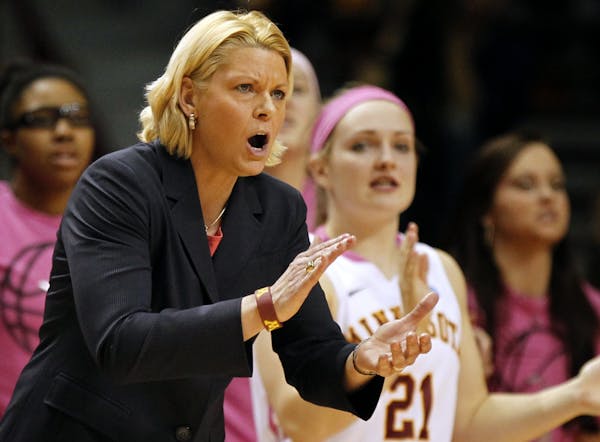Despite a "perfect storm" of pressures, the University of Minnesota is strong — hiring professors, shaving costs and thoughtfully testing new structures, President Eric Kaler said in his second State of the University address.
He rejected as "nonsense" some "bold ideas" proposed to fix higher education, such as a suggestion in Florida to charge English majors higher tuition than would-be engineers.
"Don't get me wrong — we need bold ideas," Kaler said. "We need to embrace change, reward innovation, and try new teaching and research models."
But the university ought to focus on real reforms, rooted in the state's priorities, he said, rather than flamboyantly "chasing every new idea."
In the Thursday afternoon speech, Kaler said the university has made progress on ideas he pitched during his first address last year, including a year-round academic calendar, and he ticked off savings in energy, technology and administration.
The U has been criticized at the Capitol in recent months over its administrative spending.
"We've done a lot," Kaler said, "but we must and we will do more."
Kaler also noted that he has stepped back from the idea he proposed last year to switch to a year-round academic calendar. Two tracks within the U's College of Design will pilot a year-round plan that allows students to graduate in three years, rather than four.
"It was clear that the barriers were perhaps larger than I anticipated them to be," he said in a discussion after the speech. But he said he's still a big fan of the idea and is exploring ways to encourage summer enrollment, such as discounted tuition.
Kaler to hold office hours
After his speech, which was held in Coffman Memorial Union, Kaler fielded a dozen questions submitted online, in person and via Twitter. The question-and-answer session, moderated this year by the chair of the Faculty Consultative Committee, Prof. Sally Gregory Kohlstedt, included queries about diversity, tuition, and cuts that might result from a workforce analysis requested by the Legislature and due in mid-March.
Kaler assured the audience that work will be "thoughtful ... transparent and fair."
He listed reasons for rising costs — technology and "superstar" faculty among them — but then said that he believes the U can "bend the curve of cost increases" through his efforts to make it more efficient.
Mick Hedberg, a junior, said Kaler has made clear, in this speech and others, that he takes rising costs and tuition seriously. "He doesn't just say it," Hedberg said. "And that helps us as students take it seriously, too."
During the speech, Kaler announced that he would hold office hours with students to hear their concerns. Hedberg, who is studying political science, philosophy and communication, said he'd definitely take Kaler up on that.
A 'painful' process to come
Despite his rejection of some fads proposed to reform higher education, Kaler acknowledged that the U just signed on to an idea so trendy it has its own acronym — massive open online courses, known as MOOCs. The U announced last week that it has contracted with Coursera to produce five free, online courses.
But the open online courses are not a "silver bullet," he said, to reducing higher education's overhead. He compared that mode of instruction to fast food.
"In the slow food model, the chefs — our faculty — still use all the digital technologies available," he said, "but we retain the master teacher who, face to face, can inspire our students."
Kaler, who earned his Ph.D. at the U in 1982, announced a $750,000 boost in funding for graduate students' fellowships.
He also promised a review of the structure behind the university's graduate programs. About three years ago, U leadership dissolved the Graduate School, which proved to be controversial. This review will "look at what is working and what needs to be adjusted," said Henning Schroeder, dean of graduate education.
The university also will likely need to pare down its graduate offerings, Kaler said, a process he knows will be "painful."
"But it's also not wise to simply let the water grow in the boat until the whole boat sinks," he said. "It's a lot better to say, OK, here's where we're going to put our resources and make the hard decisions."
Jenna Ross • 612-673-7168

A tale of 124 hoarded Minnesota cats has at least a hundred happy endings

Walz, St. Paul leaders urge support for copper wire theft bill: 'We've got to get in front of it'
Body of missing canoeist, 15, recovered from southwest Minnesota lake

High winds flipped a FedEx truck traveling on Bong Bridge in Duluth

